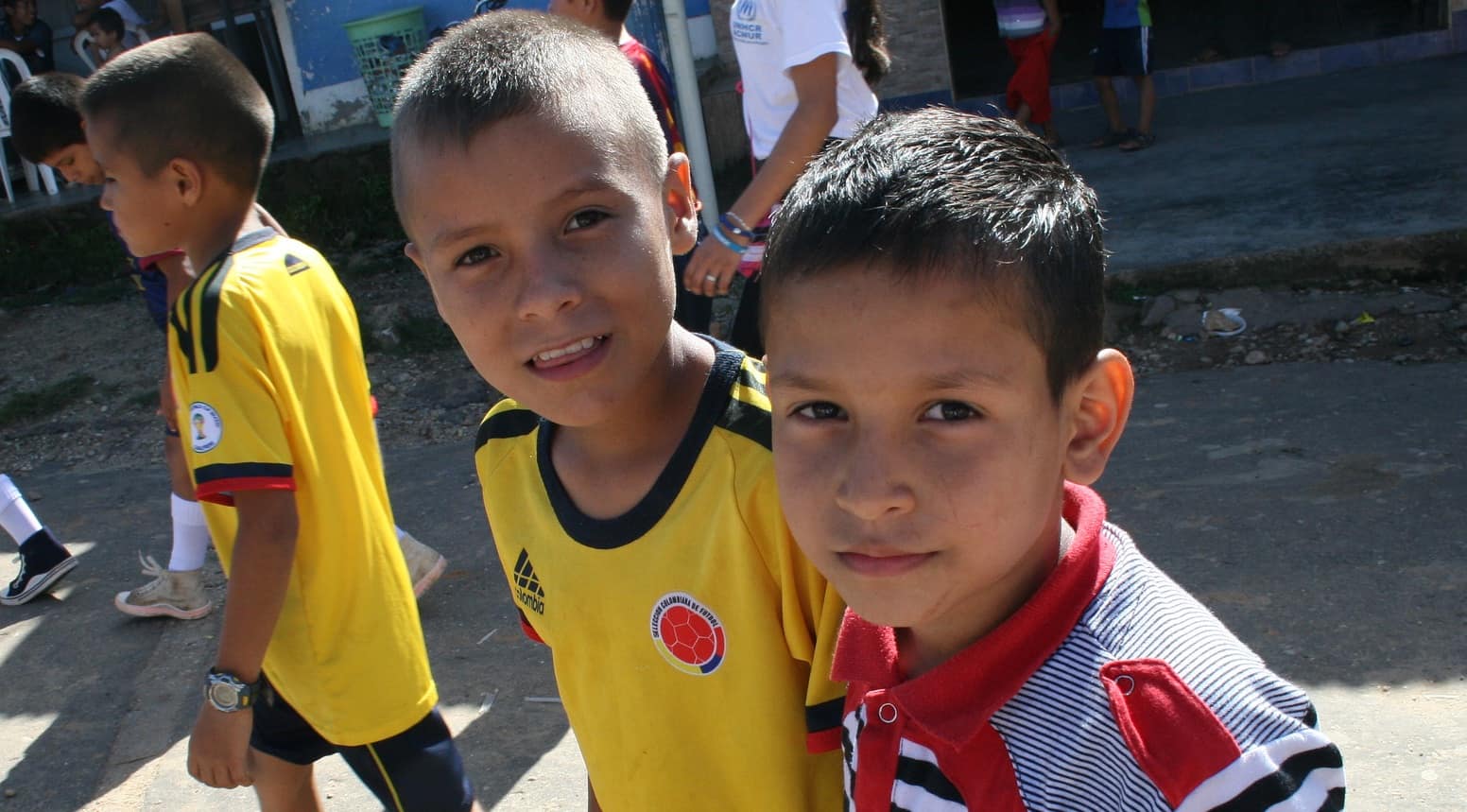Language immersion in Colombia raised many questions: from the mundane (is this fabric softener or laundry detergent?) to the philosophical (what does the subjunctive say about cultural differences) to the urgent (is this the right dosage of medicine???).
I threw myself into a new country to be stretched – with the understanding that eventually I’d return to los Estados Unidos. My inability to vocalize my inner feelings was temporary. I knew I would be understood back on my home soil.
Upon arriving in Colombia, I filled out the immigration form incorrectly and looked at the officer with a blank face and broken Spanish. But that blue US passport was my fairy godmother. I’m guessing this isn’t reciprocal.
While in the airport just after arriving back in the US, I saw passport agents yell at a confused family because the father could not speak English and forgot the immigration form on the airplane.
The eyes of the young boy in the family, maybe six years old, look scared. I wondered whether this was his new home and what his first impressions of the land of the free must be when watching national authorities humiliate his father.
When I was abroad for just five weeks, it was comical to get on the wrong bus or accidentally order chicken when I wanted a kale salad. But in looking at the face of the immigrant family in the airport, I thought of the men and women who have left Colombia. What if I was trying to come to the US – not to learn a new language for a vacation, but to escape a 40-year war? Well, suddenly it’s no longer comical.
***
Recently, the Colombian government signed a peace agreement with the FARC rebel group. FARC leader Timoleón Jimenez agreed to end the armed conflict and begin surrendering arms back to the government. An October popular vote will decide whether this peace process will move forward.
This is a big deal. For 40 years, Colombia has fought the longest-running civil war in the world. That’s 40 years of family members disappearing, guerrilla groups violently taking over rural areas, and military forces using violence in search of people harboring terrorists. That’s 40 years of attempts to flee fear and insecurity.
Because of this war, Colombia ranks number one in the world in internally displaced people – 6.9 million. That’s even more IDPs than Syria.
When people are displaced, they have to go somewhere. Many are forced to move to urban centers where they might escape violence. Others are forced to seek refuge in new countries with new customs and a new language. Many face xenophobia.
Welcome to the rest of your life, I wanted to cynically say to the boy. A life of racism, of watching your parents struggle with English, and of people considering you less than others. I hope this is better than Colombia’s civil war.
***
Whether from Colombia or Mexico, Syria or Afghanistan, I cannot help but see immigrants with more empathy. After two years of classes and an immersion experience, I still don’t know the differences between para and por in Spanish. Though I can memorize words, I may never master the subjunctive. I am humbly aware that in Spanish I sound like a less-than-intelligent version of my English self.
Millions of immigrants speak with broken phrases and different accents, trying to master what may be impossible. But unlike me, who had a temporary study abroad experience, this marks a daily reality until they die.
That boy from the airport will likely learn English, and hopefully, his life will be fine. His parents will likely struggle. Knowing the challenge that comes with learning Spanish for pleasure, I admire their struggle to learn English out of necessity. They are heroes to me.
– // –
The cover image from European Commission DG ECHO is of children from Unión Peneya in Colombia’s Caquetá department. It can be found here.


